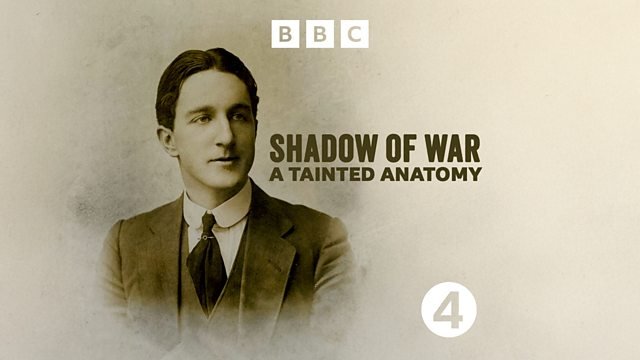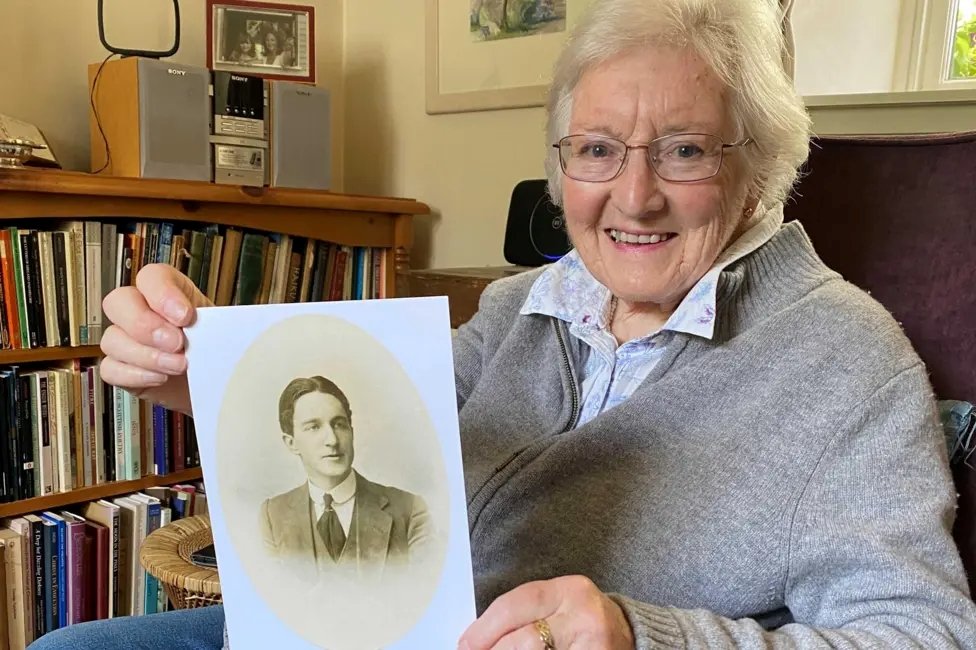Shadow of War: President presents BBC Radio 4 Documentary
Between March and December 1941, Donald Macrae, Patrick O’Connell, Donald McPhail, Joseph Elston, and William Lancaster died as German prisoners of war. During post-mortem examinations, their brains were removed and sent to neuropathological research institutes in Munich and Berlin. Until very recently, their families were unaware that these autopsies had taken place and that tissue samples had been taken without consent.

Professor Lady Sue Black’s BBC Radio 4 documentary, Shadow of War: A Tainted Anatomy brings new light to the fate of these five British servicemen, posing three important questions:
" Why were these men’s brains allowed to be removed and held? What happened to those responsible? And why are there still tissue samples from British soldiers held in German archives? "
In answering the first of these questions, the documentary explains that although Article 76 of the 1929 Geneva Convention states that prisoners of war who have died in captivity have the right to an honourable burial, the process of carrying out an autopsy and taking human tissue in the event of ‘an unusual death’ was not viewed as unethical and in fact formed part of standard practice in the 1940s. Shadow of War estimates that around 2,000 brains removed from the victims of the Nazis during the Second World War were used in studies led by Julius Hallervorden and Hugo Spatz at their research institutes in Berlin and Munich. Disturbingly, in the decades following the war, Professor Black reveals that German anatomy departments openly continued to use these samples for research.
The latter part of Professor Black’s documentary highlights the troubling fate of these human tissue samples. In the 1980s and 1990s, as their origins began to be viewed with horror by German authorities, many human tissue samples obtained during the Second World War were disposed of in an entirely unethical fashion, with thousands of unnamed glass slides buried en masse without ceremony. However, some slides, considered to be of special scientific interest – including those from Private Donald Macrae’s brain and spine – were retained and continued to be used for research until 2015. They were then transferred to the archives of the Max Planck Institute.
Thanks to the work of Professor Paul Weindling (Oxford Brookes University) and his colleagues, surviving samples have begun to be matched with patient records, and families have finally been alerted to the fate of their relatives. Such was the case for Libby Macrae, Donald’s niece, who was contacted by Professor Weindling and his team in 2020. Since then, the Commonwealth War Graves Commission has agreed to accept Private Macrae’s brain and spinal cord samples from the Max Planck Institute and reunite them with his remains already buried at their cemetery in Berlin. Libby Macrae hopes that her uncle’s remains will be reintered later in 2025, more than 80 years after his death.
 Libby Macrae with her uncle Donald's portrait.
Libby Macrae with her uncle Donald's portrait.
By finally bringing to light what happened to Donald Macrae, Patrick O’Connell, Donald McPhail, Joseph Elston, and William Lancaster decades after their tragic deaths, Shadow of War demands justice for their families and raises important questions about the history of medical ethics and research consent.
You can listen to the documentary in full here. Its producer, Emily Esson, has also written BBC news article about Macrae and the other victims of Nazi-sponsored research. The documentary was also selected as The Radio Times' pick of the week's radio.